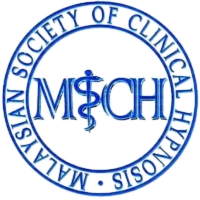Hypnosis as a Recognised Therapeutic Modality By Ministry of Health, Malaysia (KKM)
- Aug 20, 2025
- 2 min read
Updated: Sep 24, 2025
According to the American Psychological Association (APA), hypnosis is a state of focused attention and reduced awareness, characterised by an enhanced capacity to respond to suggestion. It involves a person being guided to make changes to their perception, sensation, emotion, or behaviour (American Psychological Association, 2023).
Extensive research in psychology, neuroscience, and clinical practise has demonstrated that hypnosis is a natural human phenomenon that can be studied, measured, and applied within evidence-based frameworks.
In Malaysia, the Ministry of Health (KKM) has formally recognised hypnotherapy as a therapeutic modality. It is acknowledged for its application in the management of pain, anxiety, depression, and addiction, reflecting the growing body of clinical evidence supporting its effectiveness in these areas (Ministry of Health Malaysia, 2021).
It is important to clarify that clinical hypnosis is not rooted in mythology, ritual, or superstition, nor is it derived from any religious or mystical practise. Instead, it is grounded in modern science and has been systematically explored by researchers for over a century.
In Malaysia, many medical practitioners integrate clinical hypnosis into their practise, and it is actively researched by Universiti Malaya, Universiti Teknologi MARA (UiTM), Universiti Sultan Zainal Abidin (UniSZA), and Universiti Malaysia Sabah—demonstrating both academic interest and professional acceptance of the field.
In contemporary practise, clinical hypnosis is widely applied as a complementary approach to health and well-being. Clinical hypnotherapy, for example, has been shown to assist with stress reduction, behavioural change, and other therapeutic goals. Outside of clinical settings, hypnosis is also used as a method to enhance relaxation, focus, and self-regulation.
As a professional body, we firmly believe that clinical hypnosis should be understood within its scientific and professional context. It should not be conflated with entertainment, folklore, or supernatural claims. We advocate for the responsible use of clinical hypnosis in medical and psychological practise and emphasise the importance of training, ethics, and evidence-based application.



![[Case Study] Managing Unconscious Resistance in a Patient with Trigeminal Neuralgia Chronic Pain with Clinical Hypnosis](https://static.wixstatic.com/media/5106c7_f4857199dc93401fa08acd7daa5c7a44~mv2.png/v1/fill/w_768,h_576,al_c,q_90,enc_avif,quality_auto/5106c7_f4857199dc93401fa08acd7daa5c7a44~mv2.png)



![[Case Study] Managing Unconscious Resistance in a Patient with Trigeminal Neuralgia Chronic Pain with Clinical Hypnosis](https://static.wixstatic.com/media/5106c7_f4857199dc93401fa08acd7daa5c7a44~mv2.png/v1/fill/w_254,h_250,fp_0.50_0.50,q_35,blur_30,enc_avif,quality_auto/5106c7_f4857199dc93401fa08acd7daa5c7a44~mv2.webp)
![[Case Study] Managing Unconscious Resistance in a Patient with Trigeminal Neuralgia Chronic Pain with Clinical Hypnosis](https://static.wixstatic.com/media/5106c7_f4857199dc93401fa08acd7daa5c7a44~mv2.png/v1/fill/w_71,h_70,fp_0.50_0.50,q_95,enc_avif,quality_auto/5106c7_f4857199dc93401fa08acd7daa5c7a44~mv2.webp)


Comments